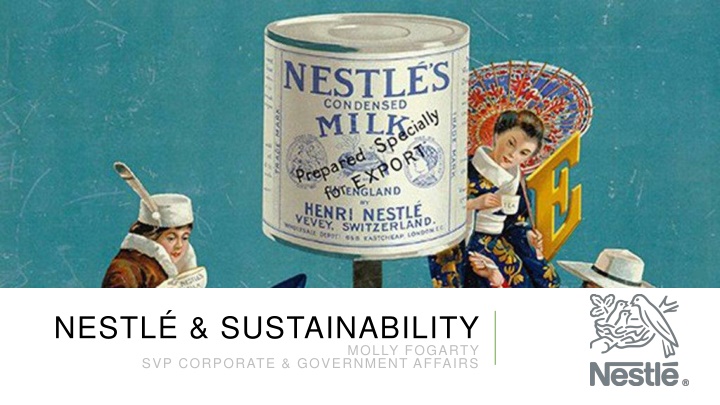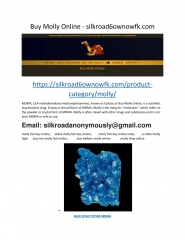
Nestlé Sustainability Initiatives and Consumer Insights Overview
Nestlé, a global food company, is committed to enhancing quality of life and promoting a healthier future. The company's purpose aligns with driving positive societal impact and supporting the UN's Sustainable Development Goals. Consumers are increasingly conscious of sustainable food production and are seeking out natural products. Key consumer insights reveal a focus on health, sustainability, and transparency in food choices. Environmental concerns have also driven a demand for sustainable food practices among consumers.
Download Presentation

Please find below an Image/Link to download the presentation.
The content on the website is provided AS IS for your information and personal use only. It may not be sold, licensed, or shared on other websites without obtaining consent from the author. If you encounter any issues during the download, it is possible that the publisher has removed the file from their server.
You are allowed to download the files provided on this website for personal or commercial use, subject to the condition that they are used lawfully. All files are the property of their respective owners.
The content on the website is provided AS IS for your information and personal use only. It may not be sold, licensed, or shared on other websites without obtaining consent from the author.
E N D
Presentation Transcript
NESTL & SUSTAINABILITY MOLLY FOGARTY SVP CORPORATE & GOVERNMENT AFFAIRS
Agenda Who we are Nestl in the United States Our Purpose & Ambitions Consumer Insights Nestl & Sustainability
Who We Are Nestl is the world s largest food company with over 2,000 brands sold in 190 countries. Our products are found in 97% of American pantries.
NESTL IN THE UNITED STATES 47 states 45,000 employees $26 billion in sales 660 million lbs. fruits & vegetables $1 billion dairy ingredients
Our Purpose Enhancing quality of life and contributing to a healthier future. Driven by our purpose we want to help shape a better world and inspire people to live healthier lives. This is how we contribute to society and ensure our long-term success. We have defined three overarching ambitions for 2030 which guide our work and support the UN Sustainable Development Goals.
Overview: Key Consumer Insights 1 Consumers are paying more attention to how food is grown and specific growing practices. They seek out sustainable and natural products as a reflection of those values. Consumers main desire is to be healthy, which leads them to fresh, minimally processed, and smaller-in-size food products. They also associate the healthfulness of food products to certain growing practices. 2 3 Consumers turn to labels for information but often feel that information is conflicting, leading them to doubt their choices. 4 Consumers, particularly Millennials, are willing to put their money where their mouth is, buying products that they feel align with their values. Cost and access remain barriers.
Environmental concerns are at an all-time high, making sustainable food production more important to consumers. Percent who worry a great deal about each environmental issue Almost6 in 10 consumers find sustainability important when deciding what food to purchase. The quality of the environment Global warming 47 42 37 45 36 34 34 34 34 37 33 32 31 30 28 25 2010 2011 2012 2013 2014 2015 2016 2017 Food Insight Survey 2018. How important is it to you that the food products you purchase or consume are produced in a sustainable way? Gallup 2017. How much do you personally worry about [specific environmental issues]: a great deal, a fair amount, only a little, or not at all?
Consumers are paying more attention to growing practices. Percent increase among consumers from 2008-2017 in that attribute being very important to their food and beverage purchasing decisions From farms that practice sustainable agriculture 74% Grass fed meat 66% USDA certified organic 60% No preservatives 60% No artificial ingredients 56% No artifical colors 55% Grown without pesticides 49% No artifical colors 46% No artifical sweeteners 43% Natural 29% Locally grown 27% Good source of protein 20% Recyclable packaging 16% Minimal packaging 14% Environmentally friendly packaging materials 14% Nutritious 12% High in fiber 9% Low cholesterol 8% Low fat 6% SCTD/NMI 2017. How important is [x attribute] toward your purchase of food and beverages?
Consumers say they are concerned about the use of pesticides. Top 3 responses for attributes that are very important to consumers food and beverage purchasing decisions How important the following aspects are to sustainable food production among consumers who say sustainable food is important (Ranked either 1st, 2nd, or 3rd) 64% Reducing the amount of pesticides 65% Ensuring an affordable food supply 43% 50% 45% Conserving the natural habitat 42% Sufficient food supply for the growing population 35% Conserving farmland over generations 31% Less food and energy waste 28% More food with less natural resources 24% Shorter distance from farm to market 22% 3% None of the above are important Nutritious Good source of protein Grown without pesticides Food Insight Survey 2018. What 3 aspects of producing food in a sustainable way are most important to you? (Of those who say it s important their food be produced sustainably.) SCTD/NMI 2017. How important is [x attribute] toward your purchase of food and beverages?
Consequently, consumers want more natural options. Percent of consumers who agree its important for my store to have 2010 2018 59% 59% 57% 51% 50% 46% 45% 39% Foods grown on farms that practice sustainable agriculture Foods that are natural Foods free from artificial colors, flavors, and preservatives Organically grown foods SCTD/NMI 2017.
Consumers focus most on buying healthy products Top 3 responses for attributes that are very important to consumers food and beverage purchasing decisions 64% of consumers say eating healthy and paying attention to nutrition is important. 64% 50% 45% Nutritious Good source of protein Grown without pesticides SCTD/NMI 2017. How important is [x attribute] toward your purchase of food and beverages? SFPA Conference Materials.
Leading them to fresher, less processed, and more sustainable food and snacks. Snack sale categories with the largest percent increase in sales since 2012 If two products have the same nutrition fact panel, which is healthier? 18% 16% 11% 1% Non-GMO snacks No artifical colors or flavors snacks Reduced sugar claim snacks Average snack product Food Insight Survey 2018. Imagine you came across two food products that had the exact same Nutrition Facts panel. Would any of the following details lead you to believe that one of the products was more likely to be healthier? Nielsen 2017. Individual snacking categories on the rise in the U.S.
More consumers are putting money where their mouth is 48% of consumers are willing to change what they buy to reduce their impact on the environment. 20% increase in sustainable food sales in the past 5 years. 64% ofhouseholds buy sustainable products. Nielsen 2018.
Driven by younger generations who care about these issues. Younger consumers are willing to pay more to support products and services that come from companies committed to positive social and environmental Generation Z 73% Millenials 72% All consumers 66% impacts. Generation Z 54% They are more likely to acknowledge global environmental issues. Millenials 56% Generation X 48% Boomers 45% Silent Generation 38% Nielsen 2015. Pew 2018.
U.S. Public Policy Priorities Our company practices are driven by what our consumers are telling us they want and need from their food, the food companies that supply it and the farmers that grow it. Environment: Advocating for innovative, science-based solutions to take action against the costly impacts of climate change, build more resilient communities, promote renewable energy and further develop sustainable agriculture systems Nutrition: Developing and advocating for policies that help people make better-informed food choices that contribute to healthy eating while supporting a sustainable environment Consumer Transparency: Improving the quality and accessibility of information available to consumers about the food they purchase for themselves and their families
Environmental Impact Reduce food loss and waste Improve the environmental performance of our packaging Provide climate change leadership
Reduce food loss and waste Reduce consumer confusion by standardizing date labels Optimize manufacturing and supply chain efficiencies Work with stakeholders to develop a globally recognized measurement protocol
Improve the environmental performance of our packaging Make all packaging recyclable or reusable by 2025 Pioneer alternative materials Increase use of post consumer recycled content Support policies that improve U.S. recycling infrastructure
Provide climate change leadership Establish an ambitious carbon pricing system to reduce economy-wide GHG emissions aligned with Paris. Accelerate new and existing policies to develop more sustainable energy sources. Utilize an incentives-based strategy to sequester GHGs from the atmosphere. Invest in American workers and in disadvantaged communities that have fewer resources to manage the costs of climate change. Ensure an economy-wide federal regulatory approach with a suite of complementary policies that work together to reduce domestic emissions.






















